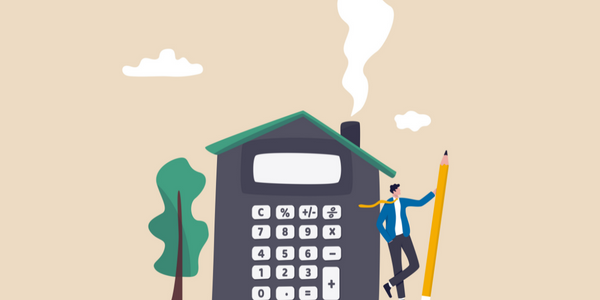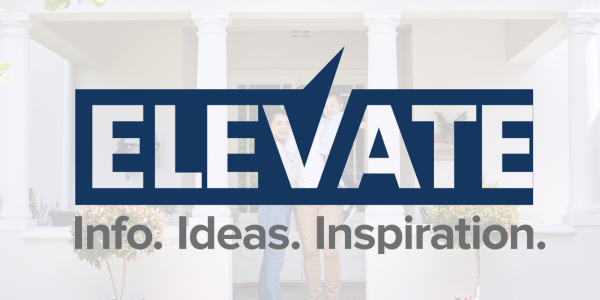
Most people understand that owning real estate can be a great investment. What they may not realize is that this investment can begin to pay off while you still own the home!

A recent report published by CoreLogic shows that in the first quarter of 2024, the average U.S. homeowner gained approximately $28,000 in equity during the past year.
Areas including California ($64,000), Massachusetts ($61,000) and New Jersey ($59,000) posted the largest average national equity gains.
If you’ve owned your home for several years, you could be sitting on a pile of money that you didn’t even know about. You can either keep sitting on it and let it grow, or you can access it and make it work for you in other ways.
A cash-out refinancing is a great way to access the equity you have accumulated in your home. As the name suggests, it provides cash you can use for anything you like while leaving your bank accounts and investment vehicles intact.
These are some of the most common reasons people decide to take cash out of their homes:
- To pay off high interest debt
- To pay for a large expense like college tuition
- To use for home improvements and renovations
- To use as a down payment on another property or for an investment
Why do people use their home equity like this? It’s because mortgage refinance rates are typically significantly lower than interest rates for credit cards and personal loans. This makes your home equity a great resource for funding different life events.
The best part is that you can still watch your home appreciate as you live in it—but now you’re doing so with more cash on hand! Here’s a little more about this strategy to help you determine whether a cash-out refinance is right for you.
How Does a Cash-Out Refinance Work?
A cash-out refinance is when you borrow more money than your original loan, taking out a larger mortgage at a new loan amount. The lump sum difference is cash you will receive back.
This is different from a rate and term refinance that allows you to refinance only the amount you owe on your existing mortgage plus fees. A borrower typically will use a rate and term refinance to lower their interest rate or change their loan term.
How Do I Pull Out Equity from My Home?
While all lenders are different, borrowers typically need to have at least 20% to 25% equity built up in their homes before for this type of mortgage loan. Most lenders will allow you to pull a maximum of 80% of your home’s value for a cash-out refinance.
The exception is if you have a VA loan. With VA loans, you’re allowed to do a cash-out refinance up to the full value of your home. Your lender will determine that value by asking for another appraisal when you apply for the refinance.
What Are the Requirements to Qualify for a Cash-Out Refinance?
As with the maximum amount you can cash out, lenders also have credit score and qualifying requirements for this type of refinance. Conventional loans prefer a credit score of 620 or above, but there are options that offer some flexibility. A debt-to-income ratio of less than 50% is also ideal for most lenders. But, again, there are flexible options out there like FHA loans.
In cases where a borrower needs to pay off debt to qualify for the refinance, lenders may require that the debt be paid through the refinance rather than the borrower receiving cash back.
Can I Refinance Without Closing Costs?
As with any other home loan, you do pay closing costs for a cash-out refinance. This will typically equate to about 2% to 5% of the mortgage. There are no-closing-cost refinances available through many lenders, but that doesn’t mean these fees simply vanish. Instead, they’re either rolled into the principal and increase the amount you owe on your mortgage or they’re recouped through a higher interest rate.
You should determine whether this is right for you or whether you’re better off paying the fees out of the proceeds of the loan. Chat with your APM loan officer for advice.
Cash-Out Refinance vs. Home Equity Line of Credit
A home equity line of credit (HELOC) and home equity loan (HEL) are both different from a traditional cash-out refinance. Both a HELOC and a HEL are considered second mortgages that go behind your first mortgage.
While a home equity loan does offer a fixed rate, it is typically much higher than first mortgage rates. A HELOC is a variable rate mortgage that adjusts with the market. So you have to be prepared for rate and payment increases if you take out a HELOC.
In general, rates on home equity loans and lines of credit are higher than those tied to a cash-out refinance in first lien position. Home equity products can be great for lower-budget projects or investments, or when you don’t need the money right away. The pay-as-you-go feature tied to the HELOC is handy for people who want a funding vehicle for the future.
To learn more about the home equity products offered by APM and how they work, click here.
Other Considerations with a Cash-Out Refinance
One thing to consider when deciding if a cash-out refinance is right for you is what you plan to do with the cash. Though it’s yours to use for whatever you like, it does have to be paid back, and with interest. You should weigh the pros and cons of tapping your home equity for the purpose you have in mind.
Many people use cash-out refinances to fund home renovations, upgrades, or repairs. Others want to pay down high-interest debts or have cash on hand in case of an emergency. A cash-out refinance is a popular solution because the interest rate is typically better than the rate you can obtain with most other loans or credit cards.
Debt consolidation benefits
Here’s another benefit to using the cash from a refinance to pay off other loans or credit card debts: It can have a big impact on your credit score! Less outstanding debt, with a lower overall monthly payment, means you have a better opportunity to make your payments on time.
It can also save you money over the long term. As credit card rates climb over 23% for new credit card holders, and 21% for existing credit card holders, consolidating your debt into one loan at a lower interest rate can put extra money back into your pocket each month.
To learn more about the pros and cons associated with a debt consolidation mortgage refinance (also considered a cash-out refinance), click here.
Making home improvements
If you’re considering making improvements to your home, the interest paid on the funds you spend may be tax-deductible. Double-check with your tax professional to learn more about the tax benefits associated with your mortgage.
Since your new mortgage is larger than the old one, your monthly mortgage payment will also increase. You want to make sure you feel confident in your ability to handle this new payment. Run your numbers with your own budget and see what the new payment will look like in your overall financial picture.
Depending on the rate you secured when you purchased your home, your new rate could be lower or higher. Either way, it’s important to weigh your options and make sure a cash-out refinance is the right fit for you. Don’t forget to factor in the closing costs, however, in addition to the higher monthly payment and longer repayment schedule.
Making the Decision
One last thing to keep in mind with a cash-out refinance: You want to make sure the benefit to you is there. A once-in-a-lifetime trip with your aging parents to visit their homeland may absolutely be worth it. A spontaneous desire to hang out in Fiji for a month, maybe not so much.
This cash will always be yours to deploy however you see fit, but remember that a home is a long-term asset. If you find yourself considering a cash-out refinance to pay down credit card bills or large purchases that keep accumulating, financial counseling and a budget may be a better solution for you. You don’t want to leverage a long-term asset for a short-term gain if you don’t have a solid plan in place.
That said, your home is one of your biggest assets. With the right plan, it can help you stay financially sound and create long-term wealth.
Our local APM Loan Advisors are here and ready to help. We can review your unique financial situation, share cost analysis and payment breakdowns, and help you understand the total savings tied to a cash-out refinance or home equity product. Then you can weigh the benefits of all your options together.








